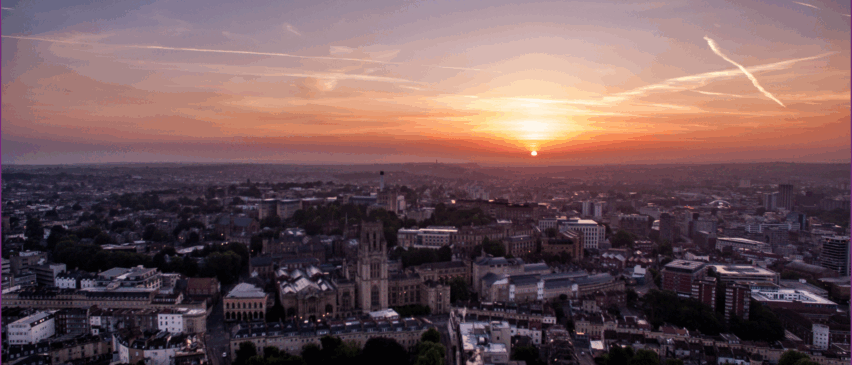
New findings from the third national Women’s Rough Sleeping Census, published today by Solace and Single Homeless Project alongside Crisis and Change Grow Live, reveal that government figures dramatically underestimate the number of women sleeping rough – including here in Bristol.
In 2024 the first women’s census was conducted in Bristol in collaboration with St Mungo’s, The Nelson Trust, One25, Shelter, and Bristol City Council. Together they wanted to gather data from women to learn more about women’s experiences of homelessness in the city.
The national women’s census, launched in 2023 by Solace and other homelessness charities, responds to the underrepresentation of women in traditional rough sleeping data. Using more accurate methods, it captures the hidden nature of women’s homelessness and the widespread impact of domestic abuse and violence. Unlike standard counts, it accounts for women sleeping in unsafe, hidden places or staying mobile at night to avoid harm – offering a clearer picture of their experiences across England.
Across the country, the women’s census recorded over ten times more women than the Government’s snapshot data. In Bristol it was twenty-three times more.
Bristol local data shows that:
• 66 women were identified by the Census count (which was done in a week) and
• 349 women were identified in the Local Insights meetings (having contact with trusted organisations over a three-month period), compared to just
• 15 women recorded by Government snapshot counts.
Jennifer Riley, CEO at One25, said:
“The Bristol women’s census reveals a stark reality: hundreds of women in our city are experiencing homelessness. This data is a call to action – for fair funding and gender-informed services. Together, we can do more to ensure that every woman has a safe place to stay.”
Women who completed the census survey told the teams about their experiences:
“I feel vulnerable. You have to rely on people who you can’t trust and don’t feel safe with. I don’t have the money to go into restaurants for shelter and have to put myself at risk and do things I don’t want to so I can get shelter for the night. To keep safe for a woman is more difficult. I have been raped by people while sleeping rough in a bank doorway. I now ensure I am with a male rough sleeper at all times. I believe this is the safest option, but it doesn’t mean I am safe.”
Following the success of the collaboration in 2024, the Women’s Rough Sleeping Census is now set to take place annually, with St Mungo’s, The Nelson Trust, One25, Shelter, and Bristol City Council continuing to facilitate the surveys in the city.
Laura Shovlin, Regional Head at St Mungo’s, said:
“The numbers show there are significant amounts of women sleeping on the streets, with many more hidden from view meaning they are not included in official statistics. Rough sleeping is dangerous for everyone, but women on the streets – whether hidden or not – face frightening levels of sexual harassment, abuse and violence.
Nobody should need to be seen rough sleeping to access the support they need. An end to the verification-based model would be much welcomed throughout the UK – and particularly beneficial for those who are hidden homeless.
There also needs to be enough women-only spaces where everyone can access specialist trauma-informed support for their physical and mental health needs. The Government must recognise women’s homelessness in its own right and fund it accordingly. The much-awaited homelessness strategy is a key opportunity to ensure that support for women affected by homelessness is delivered in a compassionate, appropriate way.”
Niki Gould, Director of Women’s Community Services at The Nelson Trust said:
“What this census shows is what many of us have known for a long time – that so many women experiencing homelessness aren’t being seen. The numbers are shocking, but they reflect a reality that has long gone unnoticed.”
Andrew McCarthy, Strategic Lead for Shelter Bristol, said:
“Nobody should have to spend their nights sheltering from the elements in a flimsy tent or doorway, but this is the devastating reality for hundreds of people across Bristol. While rough sleeping is unsafe for anyone, women who are homeless often face the added risk of being vulnerable to violence, sexual assault, and harassment.
The Bristol Women’s Census is a stark reminder that women often go under-recorded in the government’s rough sleeping counts, simply because of how risky it is to bed down in spaces that feel exposed. Working with local services to gain a more well-rounded picture is vital to understand the true extent of the housing emergency in Bristol. But to end homelessness for good, the government must build a new generation social rent homes and ensure that housing benefit actually covers the cost of people’s rents.”
Councillor Heather Mack, Deputy Leader of Bristol City Council, said:
“I’m really pleased to see this first women’s rough sleeping census in Bristol. This is an important step towards addressing gender disparities in our homelessness services and housing provision.
It is really important to understand people’s first hand experiences and use this information to help inform and improve our services.”